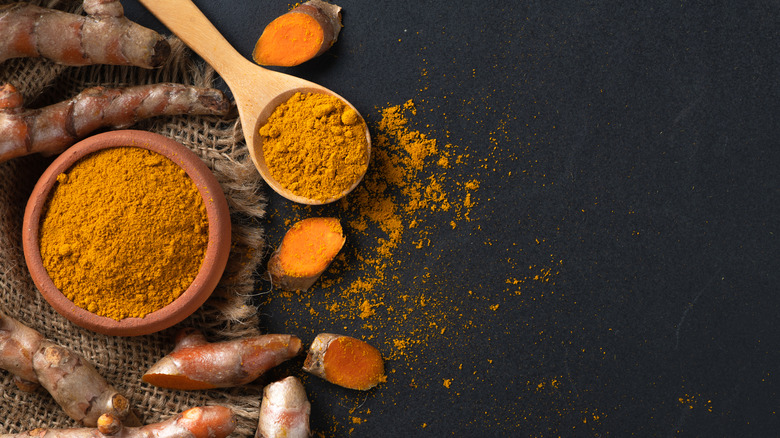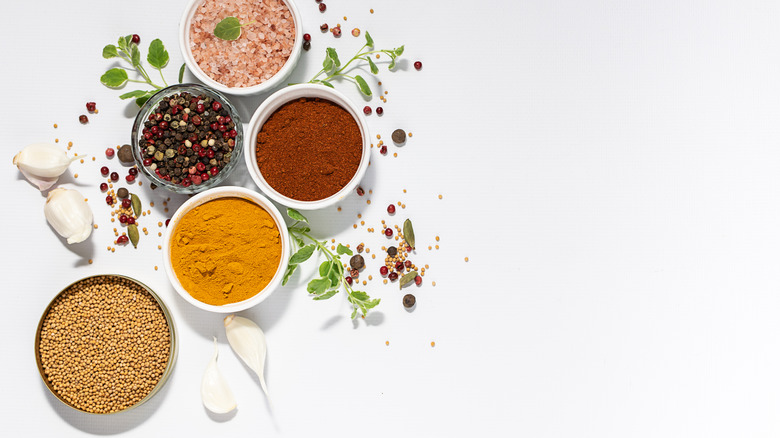Spices You Need To Help Reduce Inflammation
Inflammation happens within the body when it's trying to protect itself against something harmful, like a broken bone or a mosquito bite (via MedicineNet). While inflammation is meant to be a short-term defensive mechanism, if you experience ongoing symptoms, it is considered chronic inflammation.
According to Healthline, chronic inflammation can damage tissues, cells, and organs. It is also associated with an increased risk of medical conditions including heart disease, rheumatoid arthritis, cancer, and Alzheimer's disease.
Managing inflammation is something that should be discussed with your doctor, however, with exercise, a healthy diet, and the addition of some inflammation reducing spices, it may be easier than you think.
A paper published in the Herbal Medicine: Biomolecular and Clinical Aspects Journal discusses how some spices, including turmeric, have been used for medicinal purposes for thousands of years. Turmeric may be one of the most highly potent anti-inflammatory spices you can keep in your arsenal, and in addition to flavoring food, it can be used in the form of supplements, teas, and golden milk recipes (via EatingWell). The compound curcumin, found in turmeric, is thought to be the main source of the spice's anti-inflammatory properties, and there are many studies that support these benefits. However, more research is still needed on the subject (via WebMD).
Spice up your life and improve your health
In addition to turmeric, there are other spices that have been found to reduce inflammation. Ginger has been popularized for gastrointestinal relief, but also contains anti-inflammatory properties. A paper published in the Journal of Medicinal Food states, "During the past 25 years, many laboratories have provided scientific support for the long-held belief that ginger contains constituents with anti-inflammatory properties."
Cinnamon contains anti-inflammatory properties too, as Healthline reports that the spice, often used in sweet treats, has been shown to reduce swelling. This popular spice has also been shown to assist with other anti-inflammatory responses including lowering blood sugar and controlling neurodegenerative diseases (via EatingWell).
The chili pepper — or cayenne — contains capsaicinoids, which have been shown to reduce inflammation and has been used as medicine since ancient times (per Healthline). Garlic is another spice that can fight inflammation, according to the Arthritis Foundation, as it contains anti-inflammatory compounds.
Hippocrates, the famous Greek doctor, is quoted as saying, "Let food be thy medicine, and let medicine be thy food," and while modern medicine is essential for assisting in many health conditions, eating to stay healthy also has its purpose (via National Eating Disorders Association).


